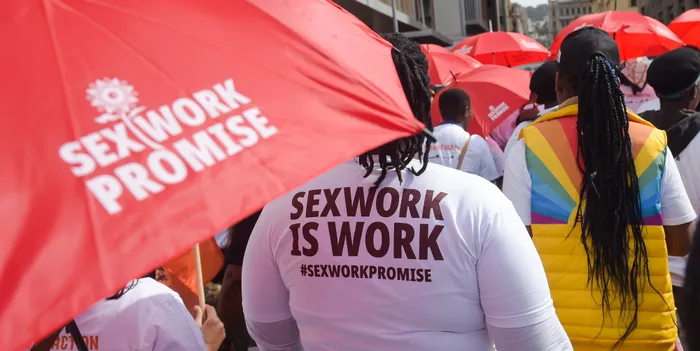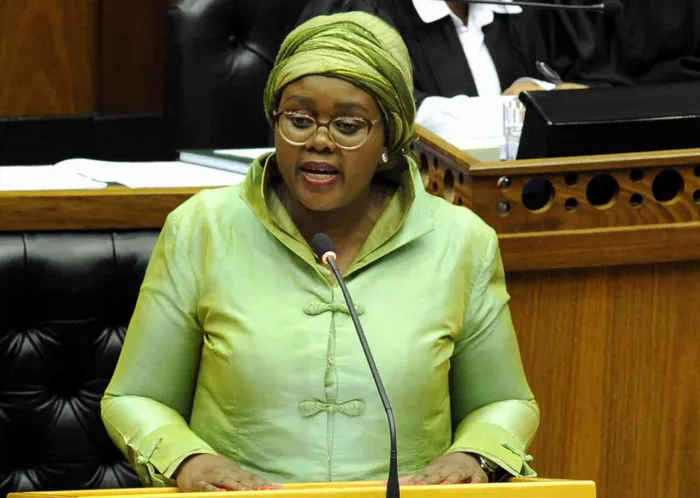
SWEAT members during a march in Cape Town, demanding decriminalisation of sex work.
Image: FILE/ Phando Jikelo/African News Agency (ANA)
Ministry of Justice and Constitutional Development has welcomed the decision to admit 16 amici curiae (friends of the court) who will assist the Western Cape High Court with insights concerning the decriminalisation of sex work in South Africa.
In its litigation, the applicants challenge the constitutionality of provisions under the Sexual Offences Act 23 of 1957, the Criminal Law (Sexual Offences and Related Matters) Amendment Act 32 of 2007 (SORMA), and the City of Cape Town By-Law on Streets, Public Places, and the Prevention of Noise Nuisances (the By-laws), insofar as they criminalise the provision and solicitation of sex work.
The main application, brought by S.H. and Sex Workers Education and Advocacy Taskforce (SWEAT), against the Minister of Justice and Correctional Services, will be heard on May 18 to 20, 2026, at the Western Cape High Court.
Spokesperson for the Minister of Justice and Constitutional Development, Terrence Manase, said they welcomed the admission of the organisations as parties before the court.

Justice and Constitutional Development Minister, Mmaloko Kubayi, has welcomed the Western Cape High Court's decision to admit 16 amici curiae (friends of the court) for the decriminalisation of sex work litigation matter.
Image: File
“The minister did not oppose any of these applications, as her considered view is that it is important for such organisations to be afforded the opportunity to present their perspectives before the court.
“This, she believes, will enrich the deliberations of the court and assist it in arriving at a just and equitable judgment on the broader issue concerning the decriminalisation of sex work,” said Manase.
Of the 16 amici curiae organisations, two of them are opposed to full decriminalisation.
Opposing full decriminalisation, Cause for Justice said they “would now begin with the mammoth task of representing the public interest in the retention of the criminal ban on prostitution, by preparing its opposing papers”.
Ryan Smit, founder and director of Cause for Justice (CFJ), considered the biblical and constitutional implications of the matter.
“In a matter such as this, it is reasonable to expect that the state would defend a law made by Parliament, as a direct representative of the South African electorate. The Constitutional Court previously upheld the legislation in S v Jordan (2002) and the South African Law Reform Commission (SALRC), after a wide-ranging and intensive seven-year project, recommended in 2015/2017 that the current total criminal ban on prostitution should be retained and further steps be taken to assist prostituted persons to divert out of the ‘commercial sex trade’,” said Smit.
According to the Asijiki Coalition for the Decriminalisation of Sex Work (Asijiki) - a group of sex workers, activists, advocates, and human rights defenders who advocate for law reform - the decriminalisation of sex work would allow sex workers to function within a human rights framework, as it would entail:
Cape Times